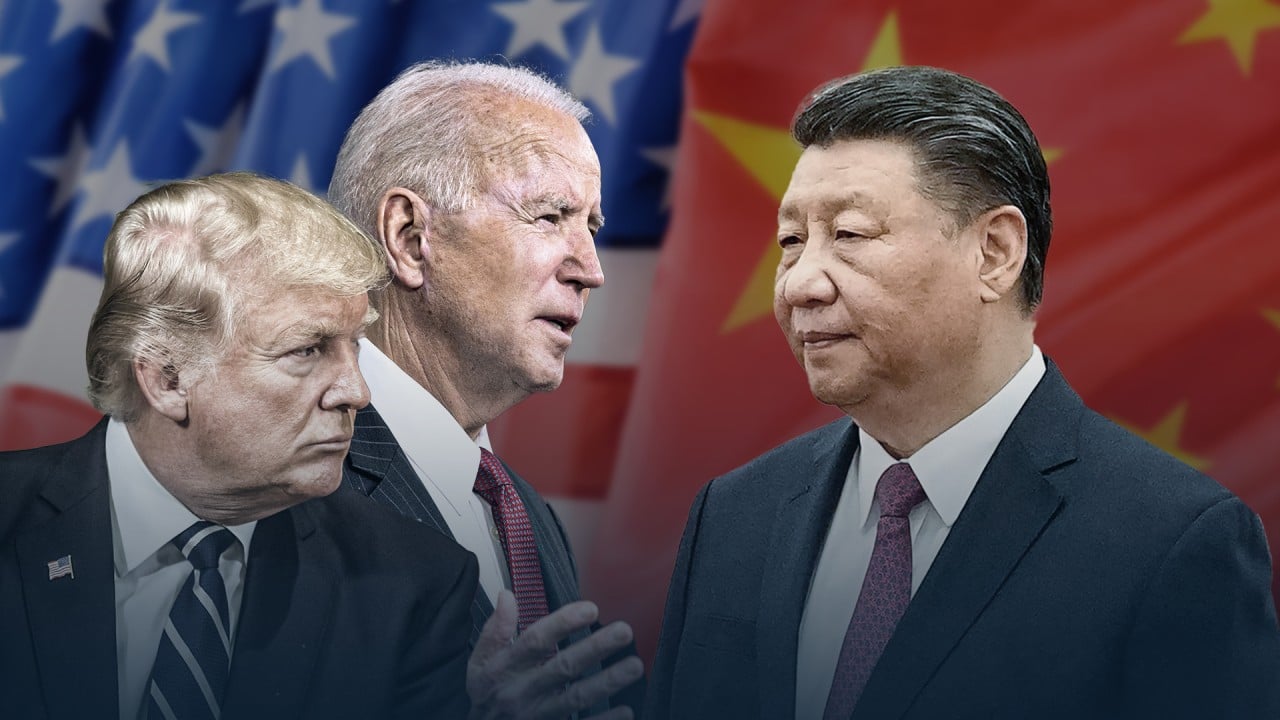
US-China relations continue to thaw at meeting between trade officials in Detroit
- Chinese Commerce Minister Wang Wentao and US Trade Representative Katherine Tai hold talks on the margin of the Asia-Pacific Economic Cooperation gathering
- Discussion follows Wang’s session with US Commerce Secretary Gina Raimondo on Thursday in Washington
Chinese Commerce Minister Wang Wentao sat down with US Trade Representative Katherine Tai in Detroit Michigan on Friday, continuing a resumption of high level face-to-face talks on trade tensions between the world’s two largest economies.
The talks followed Wang’s meeting with US Commerce Secretary Gina Raimondo on Thursday in Washington.
Wang’s meeting with Tai came on the sidelines of the Asia-Pacific Economic Cooperation (Apec) session in Detroit. A statement by the Commerce Ministry on Friday said the two sides had “candid, pragmatic and in-depth” exchanges on “economic and trade relations and regional and multilateral issues of common concern while agreeing to continue to communicate”.
“The Chinese side raised concerns on key issues such as the US economic and trade policy toward China, Taiwan-related issues in the economic and trade field, the Indo-Pacific economic framework, and Section 301 tariffs,” it read.

A read-out from Tai’s office said the trade ambassador “highlighted the need to address the critical imbalances caused by China’s state-led, non-market approach to the economy and trade policy”, while raising concerns about China’s actions against US firms operating there.
“The importance of the US-China trade ties in the global economy and the need for both sides to continue engaging” was also discussed, it noted, adding that Tai stressed the importance of maintaining open lines of communication and building on the engagement between US President Joe Biden and Chinese President Xi Jinping in Indonesia in November.
During the news conference at the end of the Apec trade ministers’ session later on Friday, Tai reiterated the “benefit of sitting down and having a conversation” to “understand each other better and how we are experiencing the impacts that we have on each other’s economies”.
On Thursday, Wang told Raimondo of China’s displeasure over the Biden administration’s trade policies that restricted exports of certain semiconductors to China and its plans to bar some US investment there.
Like Tai, Raimondo raised the “recent spate of PRC actions taken against US companies operating in the PRC” and also discussed “the overall environment in both countries for trade and investment and areas for potential cooperation”, according to the Commerce Department.
In 2018, then-US president Donald Trump, complaining that China was stealing American manufacturing jobs and dumping its cheap products in the US, imposed punitive tariffs on Chinse imports and started a trade war.
Biden, who became president in 2021, has largely stuck to Trump-era tariff policies while also imposing strict export controls in core technologies like advanced semiconductors and artificial intelligence.
In apparent retaliation, Beijing last week banned the US semiconductor producer Micron from key infrastructure projects and cracked down on due diligence firms that help multinational companies invest in China. The US Commerce Department said the moves were “not based in facts”.
At the Apec news conference, Tai refused to comment on Washington’s planned response to China’s blacklisting of Micron.
After months of no high-level communication after the downing of a Chinese surveillance balloon that had transited across the US, Biden predicted a “thaw” during his G7 trip to Japan last week. US Secretary of State Antony Blinken, who cancelled his visit to Beijing after the balloon incident, is also looking to reschedule.
Top US and China envoys meet in Vienna, highest such engagement since Xi-Biden
US National Security Adviser Jake Sullivan this month met with top Chinese diplomat Wang Yi for eight hours in Vienna. The talks were described as constructive by both sides.
On Monday, Wang Wentao met representatives of American companies operating in Shanghai, including Johnson & Johnson, 3M, Dow, Merck and Honeywell, according to the Ministry of Commerce.
“China will continue to welcome US-funded enterprises to develop in China and achieve win-win results,” he told them.
US Defence Secretary Lloyd Austin is also expected to meet his Chinese counterpart Li Shangfu on the sidelines of the Shangri-La Dialogue next week in Singapore.
Though US and China seemed to be trying to de-escalate tensions, the Apec trade ministers failed to issue a joint statement when the Russian and Chinese delegations refused to agree with the rest of the member nations on language on the Ukraine war.


